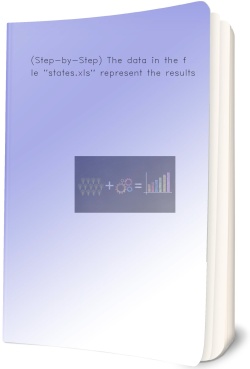You are given a set of 200 baseball cards and have reason to believe that more than half of them are of
Problem: You are given a set of 200 baseball cards and have reason to believe that more than half of them are of Brewers players \((p>.5)\). You design an experiment to test whether this hypothesis is correct. Each trial is to draw a card and record a+ if it is a Brewer and a if it is not. You replace the card and repeat the trials 10 times. You then count the number of times you drew a Brewer. You want to test whether the true proportion of Brewers cards is greater than .5.
| x | \[\Pr \left( X=x|p=0.5 \right)\] | \[\Pr \left( X=x|p=0.75 \right)\] |
| 0 | 0.000977 | 0.000001 |
| 1 | 0.009766 | 0.000029 |
| 2 | 0.043945 | 0.000386 |
| 3 | 0.117188 | 0.00309 |
| 4 | 0.205078 | 0.016222 |
| 5 | 0.058399 | |
| 6 | 0.205078 | 0.145998 |
| 7 | 0.117188 | 0.250282 |
| 8 | 0.043945 | 0.281568 |
| 9 | 0.009766 | 0.187712 |
| 10 | 0.000977 | 0.056314 |
b1) Write the null and alternative hypotheses. (4 Points)
b2) What is the rejection region for \(\alpha=.15\) ? (4 Points)
c) Based on your answer for Part B, what is the true value for \(\alpha\) ? (4 Points)
d) What is the Type II error rate \((\beta)\) given that the true proportion of Brewers cards is \(.75(\mathrm{p}=.75)\) ? (4 Points)
e) Based on your answer for Part \(\mathrm{D}\), what is the power? (4 Points)
Deliverable: Word Document



![[Solution] (a) Find the second derivatives of f(x)=∫_-∞^x^2 [Solution] (a) Find the second derivatives of](/images/solutions/MC-solution-library-80769.jpg)
![[Solution] Perform each of the following steps: State the hypotheses [Solution] Perform each of the following steps:](/images/solutions/MC-solution-library-80770.jpg)
![[Solution Library] Research Methods in International Relations [Solution Library] Research Methods in International Relations](/images/solutions/MC-solution-library-80771.jpg)
![[See Steps] Hightechland produces two commodities: movies and computers. [See Steps] Hightechland produces two commodities: movies](/images/solutions/MC-solution-library-80772.jpg)
